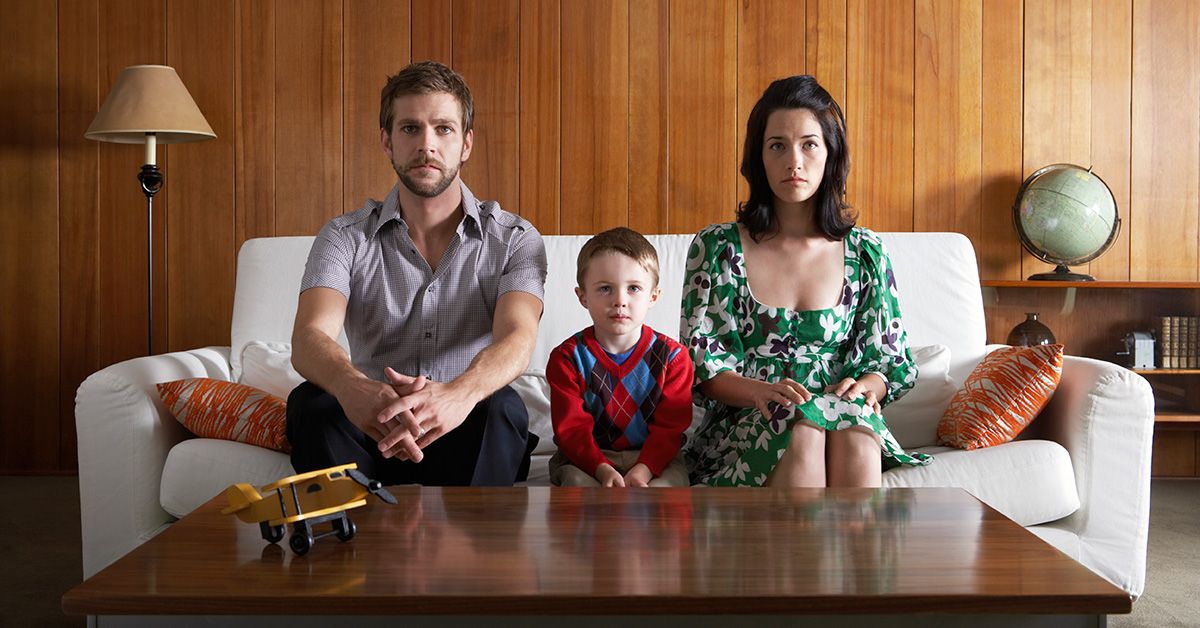Overbearing mothers, oedipus complex, persona and shadow
There is something Carl Jung said about the oedipal state in families. The oedipal situation happens when a child is overprotected. Usually overprotection by the mother of a boy.
It can also be the other way around. A girl overprotected by her mother, or all those combinations. To start with, I will talk about the classical situation. Freud observed that in such families there are often no good boundaries. The relationship between husband and wife is often strained or non-existent. The wife often turns to the child to get what she cannot get from the husband.
Freud observed that in such families there are often no good boundaries. The relationship between husband and wife is often strained or non-existent. The wife often turns to the child to get what she cannot get from the husband.
There is a great South Park episode about this. Cartman's mom called the Dog Whisperer to train Cartman, who was out of control. If you want to learn about the Freudian Oedipal state, watch this episode because it does it well.
The mother then brings this specialist with whom she wants to have a relationship (boundary problem). The expert separates her son from her. And then he disciplines him the way he would discipline a bad-tempered dog. But he also educates the owners of the dog wherever he goes. Maybe the problem is not with the dog but with the owner.
There is also a very good movie about the original Horse Whisperer. He also corrects behavioral problems in horses and is incredibly good at diagnosing psychopathology in the owner of the horse. He has an innate ability for that. Here's what happened in the South Park episode. The Dog Whisperer fixes Cartman. Cartman starts dressing appropriately, doing his homework, etc.
Here's what happened in the South Park episode. The Dog Whisperer fixes Cartman. Cartman starts dressing appropriately, doing his homework, etc.
His mom wants to have a relationship with the Dog Whisperer, but he keeps his distance. He draws boundaries and protects them. The first thing the mother does to Cartman when the specialist leaves is to bribe Cartman to go with her to the hamburger place instead of doing his homework. The reason she does this is because he is very lonely.
There is no one else around him. Maybe she is deeply, deeply afraid that if she helps this child grow up, the child will leave home and she will have nothing left. Mothers who have nothing but their babies are more likely to do this.
That's not surprising. You have to think it through. Many women ... most women ... fall in love with their babies. When babies become older children, this can be a threatening situation for them because when the baby becomes a child, the baby "dies" and in its place there is now a child. A parent can radically intervene and stop this process.
This happens all the time and is the classic Freudian Oedipal nightmare.
I knew a man whose mother tried this trick. She was a very clever woman with many tricks. But he was not going to give in. He rebelled and defied every minute of it.
Eventually he became what I would roughly call hypermasculine.
It's an interesting lesson about the hypermasculinity that men raised by single mothers often acquire. Because they go one of two ways (either hypermasculine or hyper-masculine). This man I'm talking about fought his mother every step of the way.
Young children are robust and they keep making choices. Jung thought it was a conspiracy rather than something imposed on the child by the mother. It's a conspiracy between the mother, the father and the child. I think that's a good way of looking at it, although it's difficult. Should you hold the child responsible? 
You need to go back to the beginning and find out how the hell this happened. They need to find out where they opened the door. Like a vampire. They can't come in unless you invite them in. Don't invite them in. Once they come in, they're hard to get rid of and they suck all your blood.
It's a cautionary tale. Pinocchio doesn't know any better and is in over his head. He is offered the easy path to success, which the fox describes exactly. And together they go to see Stromboli. Here's the song. I won't read the whole thing.
"The life of a celebrity and an actor is great for me."
"You sleep till 2:00 in the afternoon, smoke cigars and travel the world.
"You eat caviar and chicken. The actor's life is good."
Just wealth, people's attention and the luxury of absolutely no attention to responsibility, discipline and learning. Double the glamor, right? You get everything you want and you don't have to do anything. It's a great deal.Many of the things that you consider unquestionably good, such as compassion, first of all have a very dark side. And secondly, they are not enough to keep you on the path of life. You also need the opposite virtues. You need to develop them. And in order to do that you have to go outside the persona.
































![[FAILED] Engage2Earn: Shayne is helping koalas!](https://cdn.bulbapp.io/frontend/images/08e2e573-f490-4ef4-93b6-f2285814da59/1)

















